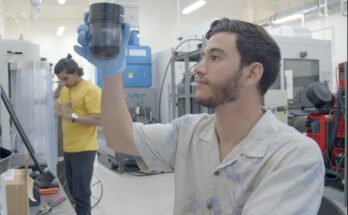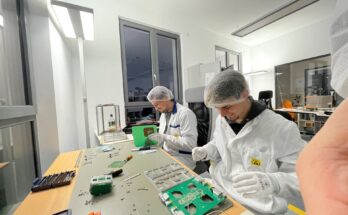Houston, we have a problem with our critical infrastructure in space. While our individual dependency on space has also grown, safeguarding space still remains an issue. Critical infrastructure and services like 5G connectivity and GPS navigation rely on space-based assets to carry out their daily functioning. This dependency makes space-based assets potential targets for description and espionage by strategic adversaries, as well as a potential target for criminal groups. So how can we defend and secure this critical backbone? In many ways, questions of securing critical infrastructure and bolstering cybersecurity in space systems are similar to those we face in securing terrestrial assets. But are there key differences in how we must secure space systems? What are those similarities and differences? Who has jurisdiction? Where do we still have gaps, both in terms of our own capabilities and understanding the threats posed by adversaries?
Satellites will play a key role in determining our collective 5G future. How we integrate terrestrial and space-based components will determine the type and degree of connectivity 5G networks enable in practice across the United States and around the world, rather than what they could have enabled in theory.
Our overwhelming reliance on space technology puts us in a precarious position. Like any other increasingly digitized critical infrastructure, satellites and other space-based assets are vulnerable to cyberattacks. These concerns are no longer merely hypothetical and, if not mitigated, could interfere with the space-enabled technology we take for granted in our day-to-day lives as well as national security and global economic development broadly.
Much of the world’s critical infrastructure is heavily dependent on space, specifically space-based assets, for its daily functioning. This dependence poses a serious, and yet frequently underrecognized, security dilemma — especially cyber threats — for critical infrastructure providers and policymakers alike.
October 4, 2017 was the 60th anniversary of the launch of Sputnik, which initiated the Space Race. A panel discussion at the Wilson Center, featuring expert historians and current space industry professionals, reflected upon the past, present, and future of human space activity.
On 20 July 1969, over half the world’s population witnessed Neil Armstrong’s first step on the Moon. While often remembered as a scientific and technological feat, the ambitions of the Apollo program aimed far beyond the Moon. Through spaceflight, America sought to win hearts and minds, foster alliances, and shape the political trajectories of newly independent nations. Drawing on a rich array of untapped archives and firsthand interviews, Operation Moonglow knits together a story of politics and propaganda; diplomacy and spaceflight; decolonization and globalization to reveal the political forces that not only sent humans to the Moon but also attracted the largest audience in history.
One Woodrow Wilson Plaza1300 Pennsylvania Ave. NWWashington, DC 20004-3027



